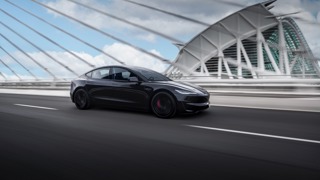Almost two-thirds (64%) of fleets now believe their costs will rise as a result of the UK leaving the European Union (EU).
In a Fleet News poll undertaken in the wake of the referendum result, just 36% believed their costs would not be impacted, compared to 61% of fleets prior to the vote.
Almost 17.5 million people (51.9%) voted for the UK to leave the EU and, within hours of the result being officially declared, Prime Minister David Cameron had announced his resignation. The London stock market plunged more than 8% in the opening minutes of trade and the FTSE 100 index fell more than 500 points, before rallying again.
Since most annual business budgets were agreed last autumn, sterling dropped 10% against the Euro and 9% against the US dollar, despite a brief rally after leading leave campaigner and former London mayor Boris Johnson announced he would not stand for Tory leadership. Further political uncertainty is predicted to take its toll on the markets.
Colin Tourick, professor of automotive management at the University of Buckingham business school, told Fleet News: “The long-term impacts of Brexit are unknown and as yet unknowable, but there are clearly going to be bumps in the road.
“In the short term, fleet budgets are likely to be blown out of the water. Fuel costs and new vehicle costs will rise, because sterling will fall.”
As the UK imports so many goods, Tourick believes general inflation will rise, affecting maintenance and parts prices.
He continued: “Uncertainty about GDP will make leasing companies pull back their residual value predictions, causing lease rates to rise.
“Some sectors will be hit hard by the economic impacts of Brexit, and in those industries we can expect redundancies and a reduction in demand for new cars.
Many other businesses will simply delay investment decisions until they know what’s happening. Expect companies to extend leases rather than signing up to new leases.”
However, a reduction in the value of sterling would boost exports, and this could provide some respite and is the best hope for medium-term financial stability.
Tourick said: “Fleet managers are going to have to find innovative ways to reduce fleet costs. This could be a time to look at introducing telematics, moving from outright purchase to leasing, reviewing fuel reimbursement rates and looking again at fleet allocation lists.”
The Society of Motor Manufacturers and Traders (SMMT), warned against a vote to leave prior to the referendum, highlighting the potential for costs to increase.
It said the UK’s membership of the EU allowed components and finished vehicles to be imported and exported across the single market without tariffs.
Brexit could see the industry having to pay tariffs of up to 10% – a significant cost in an industry with tight margins – if the UK fails to gain access to the free market. Any additional costs could then be passed on to fleet customers through increased rentals, fewer discounts and heftier P11D prices.
Access to the single market and EU-negotiated inter-national trade deals plus the ability to recruit talent and influence new standards, it says, have all helped to make the UK automotive industry one of the world’s most competitive.
Mike Hawes, SMMT chief executive, said: “Growth depends on certainty and continued open and reciprocal access to the 100-plus markets with which the UK automotive industry so successfully trades. This is not just finished cars but components, technologies and the wider automotive value chain.
“Any risks and uncertainty to these fundamental benefits need to be addressed head on by UK Government.”
The British Vehicle Rental and Leasing Association (BVRLA) said it would be working closely with UK and European policymakers to ensure that the exit process has a minimal impact on members and their customers.
John Leech, head of automotive at KPMG UK, said: “The fall in sterling and commodity prices will prompt vehicle production plans, sales incentives, financing arrangements and purchasing plans to be adjusted.
“In recent months, we have seen some industry commentators believe that UK new car sales could top three million in the coming years. The vote to leave the EU means that this has become highly unlikely and I now forecast that new car sales will fall to 2.5m cars in 2017.”
This would have a positive impact on nearly new used car prices, which have been under significant pressure in recent months, according to Dylan Setterfield, senior forecasting editor at Cap HPI.
“No-one is going to pay less for a used car today or in the coming weeks as a result of the referendum vote,” he said.
Glass’s agrees that prices will not be affected for at least the next four weeks or so. Rupert Pontin, director of valuations, said the auctions halls had seen a slight downturn in activity which had impacted on conversion rates.
However, “no-one is panicking”, he said.
Despite the dramatic fall in the pound in the aftermath of the vote to leave the EU, there was not as big an effect on wholesale fuel prices as might have been expected.
RAC fuel spokesman Simon Williams explained: “While the exchange rate is a very important factor in determining the price we pay for fuel at the pumps, the associated fall in the price of crude oil due to fears of weaker global demand has softened the effect on wholesale fuel prices. Had the barrel price stayed constant, the falling pound would have caused wholesale prices to rise sharply.”
In early June, the price of crude oil rose to $50 – a figure not seen since October last year, and at the time of the referendum was just under $49. However, the following Monday the barrel price dropped to $45.88. This 6% reduction softened the impact on wholesale fuel of the 11% fall in the strength of the pound against the dollar.
“As it is, we may well see forecourt prices go up by a penny or two from the current average prices for both petrol and diesel of 112p a litre,” continued Williams. “But we should remember that a year ago a litre of unleaded was 5p more expensive and diesel was 9p dearer.”
In recent months, diesel has been in the firing line due to rising concerns about the impact of NOx on air quality. However, fleets are being told not to expect environmental measures to be swept away post-Brexit (see page 7).
A spokesman for the Low Carbon Vehicle Partnership (LowCVP) said: “We don’t anticipate any significant changes in regulations in the near-term and are encouraged by the Government’s post-Brexit announcement that it intends to agree the details of the Fifth Carbon Budget.
“The UK automotive industry remains well placed to capitalise on the low-carbon markets of the future and there will continue to be operational benefits and savings to fleet operators through the adoption of lower-carbon vehicles and fuels.
“On this agenda, we will certainly need to continue to work in partnership both within, and beyond, national boundaries.”
The UK is not expected to dramatically de-regulate, even after the negotiation period, especially when it comes to road or personal safety, according to James Backhouse, director of legal firm Backhouse Jones.
However, he concluded: “It is crucial that operators ensure that the Government is made aware of the main issues in the transport sector, highlighting any economic impact on the UK economy if certain current rules are surrendered in the negotiation.”






















Petrol Paul - 11/07/2016 11:31
I was a strong advocate of remain, however with the likes of Germany exporting far more cars than they import, I agree with the Brexiters that tariffs are highly unlikely [as they would penalise the EU more than the UK]. Worst case scenerio to avoid extra costs - we'd have to buy what we made here and with the UK manufacturing excellent fleet cars from Jaguar [XE], Nissan [Qashqai], Honda[Civic], Mini etc, Commercials from Vauxhall [Vivaro] - it's not like we cou.d not create a UK built vehicle policy. As the article points out the more significant impact will be around residual values / the used market if the UK economy does not remain strong - which is why we need less scaremongering and more focus on what we do already and can achieve going forward. #positivefocus